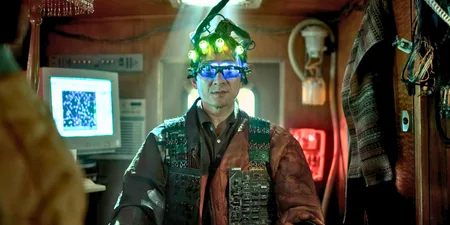It is far better to add context to dated material, rather than pretend the mistakes of the past didn’t happen
Earlier this month, Disney+ viewers started noticing that content warnings had started appearing before classic films.
The 12-second unskippable warnings, that appeared before movies including Peter Pan, Dumbo, The Aristocats and Lady and The Tramp, state that they included “negative depictions and/or mistreatment of people or cultures.”
“These stereotypes were wrong then and are wrong now. Rather than remove this content,” the warnings continue, adding that the company wants to “acknowledge its harmful impact, learn from it and spark conversation to create a more inclusive future together.”
And these warnings are pretty justified. For instance, Dumbo features the infamous crow characters that speak in stereotypical black voices, and The Aristocats includes Shun Gon, the Asian cat, who has slanted eyes and buck teeth.
However, this being the internet in the year 2020, the response was much as you’d expect: angry dads bemoaning ’snowflakes’ and ‘wokies’ and ‘political correctness gone mad’. Which is particularly frustrating, as this is almost definitely the best course of action Disney could have taken. The other option is to pretend they never existed, which is far worse.
For instance, let’s look at Song of the South. You almost definitely haven’t seen 1946’s Song of the South, despite it contributing several memorable elements to the Disney canon. It is the film that the song ‘Zip-a-Dee-Doo-Dah’ came from, and that the Splash Mountain series of theme park rides are based on.
Yet the film, which a hybrid of live-action and animated scenes, is not on Disney+, and has never been released on home video in the US. Why? Because the film, which is set during an unspecified period of the 19th century in the American south, is generally acknowledged to glorify the plantation life of African-Americans during that era.
Kids won’t be able to stumble on Song of the South after watching Cinderalla or The Jungle Book. And that’s a good thing. Obviously, we don’t want to enjoy a film like that as straight entertainment today, even if it does still have some nice songs and animation.
But it has not just been about stopping young eyes from seeing it. It has essentially been erased from history by Disney. It is almost impossible to find legally. And that is arguably even worse. Instead of learning from the mistakes of the past, we are pretending they didn’t happen. And Disney are pretending their history is spotless.
Ok, Dumbo and The Aristocats are different – they have one egregious element or character, unlike Song of the South, which is insidious on a conceptual level. But giving those films context – Disney has launched a new website to do just that – means that we can see the progress we have made, and how we need to keep improving.
It is easy to look back at these films, most of which are over 50 years old, and just say it was from a different era, and things have changed. Yet in the last few months, we’ve seen episodes of TV comedy, including Peep Show, 30 Rock, The Mighty Boosh and Little Britain, be removed from various streaming services for their use of things like blackface. Many of those episodes are less than a decade old, which proves there is still a lot of work to be done.
And if we just brush these things under the carpet and pretend they never happened, instead of confronting them, then we will never learn the lessons we need to.







































